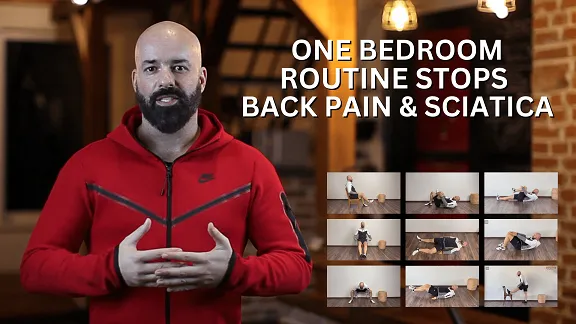Are you looking to carve out a successful career in the world of marketing? Look no further. In this article, you will discover key tips and insights on how to build a flourishing career in marketing. From honing your skills in digital marketing to understanding consumer behavior, we will delve into the essential steps you need to take to grow professionally in this dynamic and competitive industry. Get ready to unlock your potential and pave the way for a prosperous marketing career.

- 1. Choose a Marketing Specialization
- 2. Develop Strong Marketing Skills
- 3. Gain Relevant Education and Certification
- 4. Build a Strong Personal Brand
- 5. Gain Practical Experience
- 6. Build a Professional Network
- 7. Stay Updated with Industry Trends
- 8. Embrace Data and Analytics
- 9. Develop Leadership Skills
- 10. Seek Career Growth Opportunities
1. Choose a Marketing Specialization
When starting your career in marketing, it’s important to choose a specialization that aligns with your interests and strengths. Here are some popular marketing specializations to consider:
1.1 Digital Marketing
Digital marketing focuses on promoting products or services through online channels such as websites, social media platforms, search engines, and email marketing. This specialization requires a deep understanding of digital platforms and analytics.
1.2 Social Media Marketing
Social media marketing involves creating and implementing marketing strategies on various social media platforms to engage and connect with target audiences. It requires knowledge of social media trends, content creation, and community management.
1.3 Content Marketing
Content marketing centers around creating and distributing valuable content to attract and retain a target audience. This specialization includes creating blog posts, videos, infographics, and other types of content that educate, entertain, and inspire.
1.4 Brand Management
Brand management focuses on building and maintaining a positive brand image and reputation. It involves brand positioning, brand strategy development, and overseeing all brand-related activities to ensure consistency and relevance.
1.5 Market Research
Market research involves collecting and analyzing data to gain insights into consumer behavior, market trends, and competitors. This specialization includes conducting surveys, interviews, and data analysis to inform marketing strategies and decision-making.
2. Develop Strong Marketing Skills
To excel in your marketing career, it’s essential to develop a set of core marketing skills. Here are some key skills to focus on:
2.1 Communication Skills
Effective communication skills are crucial in marketing. This includes both written and verbal communication, as marketers need to convey messages clearly to target audiences, collaborate with cross-functional teams, and negotiate with stakeholders.
2.2 Analytical Skills
Analytical skills are essential for interpreting data, identifying trends, and making data-driven decisions. Being able to analyze marketing metrics, conduct market research, and interpret customer insights will help you optimize marketing strategies.
2.3 Creativity
Creativity is at the heart of marketing. Being able to generate fresh ideas, think outside the box, and develop innovative campaigns will set you apart in a competitive industry. Embrace your creative side and constantly strive to bring new ideas to the table.
2.4 Strategic Thinking
Strategic thinking involves looking at the bigger picture and aligning marketing efforts with broader organizational goals. It requires the ability to anticipate future trends, identify opportunities, and develop long-term marketing strategies that drive business growth.
2.5 Problem-Solving Skills
Marketing professionals often encounter complex challenges that require thoughtful problem-solving. Being able to analyze problems, develop solutions, and adapt strategies in a fast-paced environment will position you as a valuable asset to any marketing team.
3. Gain Relevant Education and Certification
While formal education is not always a prerequisite for a successful marketing career, gaining relevant education and certifications can provide a solid foundation and demonstrate your commitment to the field. Here are some options to consider:
3.1 Bachelor’s Degree in Marketing
Pursuing a bachelor’s degree in marketing or a related field can provide you with a comprehensive understanding of marketing principles, consumer behavior, market research, and strategic planning. It also offers the opportunity to network with peers and gain practical experience through internships.
3.2 Certifications in Marketing
Obtaining certifications in specific areas of marketing can enhance your knowledge and credibility. Consider certifications such as Google Ads, HubSpot inbound marketing, Facebook Blueprint, and Google Analytics to showcase your expertise in digital marketing, social media marketing, and data analytics.
3.3 Continuous Learning
Marketing is a rapidly evolving field, so it’s important to stay updated with the latest trends and best practices. Engage in continuous learning by attending workshops, webinars, and online courses. Stay curious and embrace new technologies and strategies to stay ahead in the marketing industry.
4. Build a Strong Personal Brand
Building a strong personal brand goes beyond marketing products or services. It involves establishing your professional identity and positioning yourself as an industry expert. Here are some steps to build your personal brand:
4.1 Define Your Professional Identity
Reflect on your strengths, values, and unique qualities that set you apart. Identify your niche in the marketing field and define what makes you stand out. This will help you differentiate yourself and attract opportunities that align with your expertise.
4.2 Create an Online Presence
In today’s digital era, having an online presence is crucial. Create a professional website or portfolio that showcases your work, skills, and achievements. Optimize your LinkedIn profile to highlight your experience and connect with industry professionals. Engage with relevant online communities and share valuable content to establish yourself as a thought leader.
4.3 Networking
Networking plays a pivotal role in building a successful marketing career. Attend industry events, join professional associations, and participate in networking events both online and offline. Engage in meaningful conversations, collaborate with others, and be open to learning from industry peers.
4.4 Personal Projects
Undertake personal marketing projects to showcase your skills and creativity. This could involve developing a personal blog, creating a podcast or YouTube channel, or launching a social media campaign. These projects not only demonstrate your capabilities but also provide valuable content to share with potential employers or clients.
5. Gain Practical Experience
Practical experience is invaluable in the marketing industry. Here are some ways to gain hands-on experience:
5.1 Internships and Entry-Level Positions
Internships and entry-level positions offer opportunities to apply theoretical knowledge in real-world scenarios. Seek out internships or entry-level positions at marketing agencies, companies, or non-profit organizations that align with your interests. These experiences will provide valuable insights, skills, and networking contacts.
5.2 Volunteer Work
Volunteer your marketing skills to non-profit organizations or community projects. This not only allows you to make a positive impact but also helps you develop and refine your marketing skills in a practical setting. Additionally, it demonstrates your commitment and passion for making a difference.
5.3 Freelancing
Consider freelance marketing projects to gain diverse experiences and build your portfolio. Websites such as Upwork and Freelancer provide opportunities to find freelance marketing gigs. Freelancing allows you to work with different clients, industries, and projects, enhancing your versatility and adaptability.
5.4 Side Projects
Initiate your marketing side projects, such as starting a blog, organizing events, or launching a small business. These projects allow you to experiment, test different strategies, and develop a deep understanding of various marketing facets. They also serve as concrete examples of your abilities when showcasing your work to potential employers or clients.
6. Build a Professional Network
Building a strong professional network is crucial for career growth and access to opportunities. Here are some ways to expand your network:
6.1 Attend Industry Events
Attend marketing conferences, workshops, seminars, and networking events. These events provide opportunities to connect with industry professionals, learn from experts, and stay updated with the latest trends and technologies in marketing. Be proactive, introduce yourself, and engage in meaningful conversations.
6.2 Join Professional Associations
Join professional marketing associations or societies relevant to your specialization. These associations provide networking opportunities, access to industry resources, and professional development opportunities. By actively participating, you can build valuable connections and gain insights from seasoned professionals.
6.3 Participate in Online Communities
Engage in online communities such as marketing forums, LinkedIn groups, and social media groups. Contribute valuable insights, share your expertise, and participate in discussions. This allows you to connect with professionals worldwide, exchange ideas, and learn from a diverse range of perspectives.
6.4 Seek Mentors
Identify industry professionals who inspire you and seek mentorship. Mentors can provide guidance, advice, and support as you navigate your marketing career. Reach out to professionals through networking events, social media platforms, or professional associations. Build genuine relationships and leverage their expertise to accelerate your professional growth.
7. Stay Updated with Industry Trends
Marketing is a dynamic field that constantly evolves, so staying updated with industry trends is crucial for career success. Here are some strategies to stay in the loop:
7.1 Follow Marketing Blogs and Publications
Follow reputable marketing blogs and publications to stay informed about the latest industry news, emerging trends, and best practices. Some popular marketing blogs include Moz, HubSpot, Neil Patel, and Social Media Examiner. Subscribe to their newsletters or follow them on social media platforms for regular updates.
7.2 Attend Marketing Conferences
Attend marketing conferences and industry-specific events that focus on the latest trends and innovations in marketing. These events provide opportunities to hear from experts, attend workshops, and network with professionals. Stay updated with upcoming conferences and choose events that align with your interests and specialization.
7.3 Engage in Continuous Learning
Invest in ongoing professional development by participating in online courses, webinars, or workshops. Platforms such as Coursera, Udemy, and LinkedIn Learning offer a variety of marketing courses that allow you to deepen your knowledge, learn new skills, and adapt to emerging industry trends. Stay curious and embrace lifelong learning.
8. Embrace Data and Analytics
In today’s data-driven marketing landscape, it’s essential to embrace data and analytics to make informed decisions and optimize marketing strategies. Here’s how to do it:
8.1 Understand and Utilize Data
Develop a solid understanding of data collection methods, analytics tools, and data visualization techniques. Familiarize yourself with platforms such as Google Analytics, Facebook Insights, and CRM systems. By leveraging data, you can uncover valuable insights about your target audience, their preferences, and their behaviors.
8.2 Analyze Marketing Metrics
Learn how to analyze marketing metrics to measure the effectiveness of your campaigns and initiatives. Key metrics to track include website traffic, conversion rates, engagement rates, customer acquisition costs, and return on investment (ROI). Use these insights to identify areas for improvement and optimize your marketing strategies.
8.3 Apply Insights to Improve Strategies
Utilize the insights gained from data analysis to refine your marketing strategies. Adjust your messaging, targeting, and channels based on what resonates with your audience. By continuously analyzing and implementing data-driven optimizations, you can improve the effectiveness and efficiency of your marketing efforts.
9. Develop Leadership Skills
As you progress in your marketing career, developing leadership skills becomes increasingly important. Here are some skills to focus on:
9.1 Team Management
Leadership involves effectively managing teams and fostering a collaborative and inclusive environment. Develop skills such as team building, coaching, and conflict resolution. Support your team members, provide constructive feedback, and empower them to reach their full potential.
9.2 Collaboration and Communication
Develop strong collaboration and communication skills to work effectively with cross-functional teams, clients, and stakeholders. Be open to diverse perspectives, actively listen, and clearly articulate your ideas. Effective collaboration and communication lead to successful marketing campaigns and stronger professional relationships.
9.3 Decision-Making
Leaders need to make informed and timely decisions. Develop skills in gathering relevant information, critically analyzing data, and considering different viewpoints. Practice decision-making within your marketing projects and seek feedback from mentors or more experienced professionals.
9.4 Adaptability and Flexibility
The marketing landscape constantly evolves, requiring marketers to adapt and be flexible. Develop a growth mindset and embrace change. Be open to learning new technologies, strategies, and methodologies. This ability to adapt and thrive in dynamic environments will set you apart as a leader in marketing.
10. Seek Career Growth Opportunities
To build a successful marketing career, it’s important to seek out growth opportunities that challenge and expand your skill set. Here are some ways to do it:
10.1 Take on Challenging Projects
Seek out challenging projects within your organization or volunteer for additional responsibilities. This allows you to step outside your comfort zone, learn new skills, and demonstrate your ability to take on more significant roles.
10.2 Pursue Advanced Education
Consider pursuing advanced education such as a master’s degree in marketing or a specialized marketing program. This further deepens your knowledge, expands your network, and positions you for higher-level roles in marketing.
10.3 Seek Mentorship and Coaching
Continue seeking mentorship and coaching throughout your career. Mentors and coaches can provide guidance, feedback, and help you identify growth opportunities. Regularly connect with mentors or join mentorship programs offered by professional associations.
10.4 Apply for Promotions or Job Changes
Don’t be afraid to apply for promotions or seek job changes to advance your career. Continuously reassess your skills, interests, and long-term goals. When suitable opportunities arise, be proactive in pursuing them and showcase your accomplishments and capabilities.
Building a successful career in marketing requires a combination of specialized knowledge, practical experience, continuous learning, and a strong professional network. By following these steps and staying dedicated to your personal and professional growth, you can thrive in the dynamic and rewarding field of marketing.








